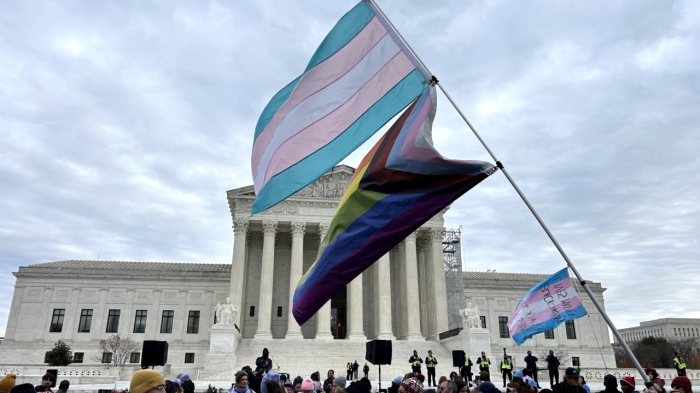
Two parents have asked the U.S. Supreme Court to stop a Massachusetts school district from hiding and not disclosing the so-called social gender transition of their child.
In a petition for writ of certiorari filed last Friday, Stephen Foote and Marissa Silvestri urged the Supreme Court to act on what they consider a threat to parental rights and child mental health.
The couple filed a lawsuit against officials with Ludlow Public Schools, accusing them of encouraging their middle school daughter to identify as nonbinary against their wishes.
Understanding that their daughter suffered from depression and questioned her gender identity, the couple hired a private counselor and instructed the school not to have private conversations with their daughter on these matters. However, the complaint alleges that school officials went against the parents’ wishes and regularly encouraged their daughter to “transition” to a male name with nonbinary pronouns. The school permitted the daughter to use the bathrooms designated for boys.
The parents allege that school officials kept this gender identity status hidden from them and refused to discontinue the transition after the parents learned about the situation. The lawsuit contends that the school counselor questioned her parents’ choice of counselor without ever talking with the parents, and the school “concealed their activities” by using the child’s “real name and pronouns when communicating with” the parents.
“Parents across the country need this Court’s swift intervention, lest schools continue to mold their children’s sexual identity without parental input. There’s no time to waste,” reads the petition.
Foote and Silvestri are represented by attorneys with the Child & Parental Rights Campaign and the Alliance Defending Freedom, a conservative legal nonprofit that has won several First Amendment cases before the Supreme Court.
ADF Senior Counsel and Vice President of Appellate Advocacy John Bursch said in a statement that parents “have the fundamental right to direct the upbringing, education, and health care of their children.”
“Mr. Foote and Ms. Silvestri have a moral belief, backed by well-supported scientific opinion, that a so-called gender transition harms children,” stated Bursch.
“Yet the Ludlow School Committee has not only enacted a secret social transition policy that keeps parents completely in the dark about their kids, they also blatantly go against parents’ express wishes.”
In April 2022, Foote and Silvestri, along with another set of parents, Jonathan Feliciano and Sandra Salmeron, filed a complaint against Ludlow officials regarding the gender identity policy.
Named defendants included officials at Baird Middle School, Interim Superintendent Lisa Nemeth, former Superintendent Todd Gazda, Baird Middle School Principal Stacy Monette, school counselor Marie-Claire Foley and former librarian Jordan Funke.
In December 2022, U.S. District Judge Mark Mastroianni ruled against the parents, writing that Massachusetts law “recognizes gender identity as a personal characteristic deserving of protection from discrimination” and does not “provide exceptions to permit parents to override a school’s decision to support students who identify as transgender or gender nonconforming.”
However, Mastroianni also found it “disconcerting” that the school had a policy “requiring school staff to actively hide information from parents about something of importance regarding their child.”
“Students and parents would almost certainly be better served by a more thoughtful policy that facilitated a supportive and safe disclosure by the student, with support and education available for students and parents, as needed and when accepted,” he wrote.
In February, a three-judge panel of the 1st U.S. Circuit Court of Appeals issued a per curiam opinion upholding the lower court ruling. The majority concluded that “the Parents have failed to state a plausible claim that Ludlow’s implementation of the Protocol as applied to their family violated their fundamental right to direct the upbringing of their child.”
The panel opinion rejected the parents’ argument that school officials’ actions “constituted medical treatment that restricted their parental right to control their child’s medical care.”
“Thus, although precedent indicates that parents have the right to direct their children’s medical treatment, whether that treatment is complex or more routine, the allegations here do not involve clinical conduct at all,” the per curiam opinion continued.
“Solely as pled here, we do not believe that using the Student’s chosen name and pronouns — something people routinely do with one another, and which requires no special training, skill, medication, or technology — without more, can be reasonably viewed as evidencing some indicia of medicalization.”

















